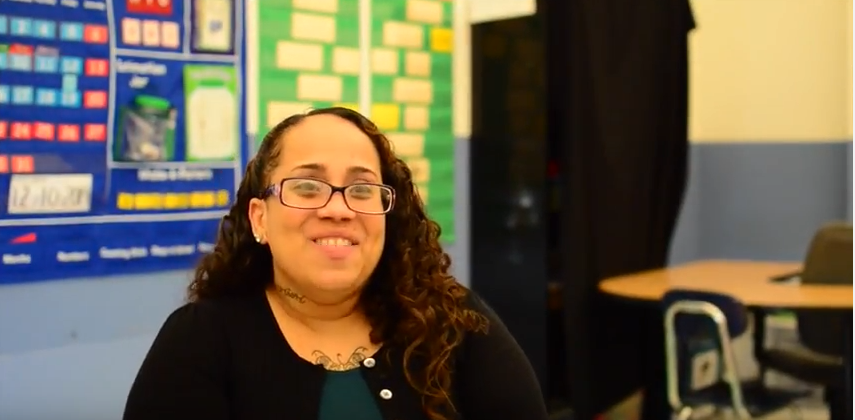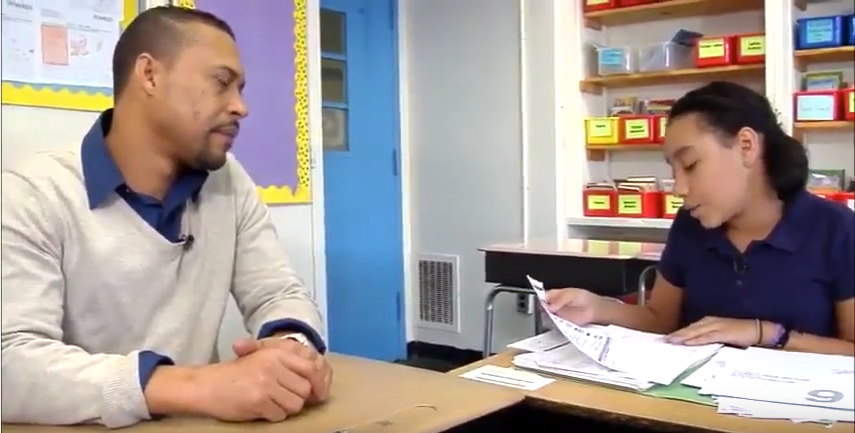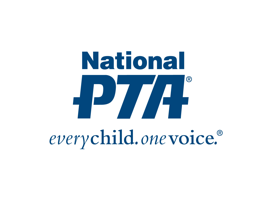In the Classroom
Clear, consistent learning goals describe what your child needs to know and understand before the state test at the end of the year in math and English language arts. Along with grades and classroom work, it is one of several measures of how well your child is meeting grade-level expectations.
With this important information in hand you’ll know exactly where they are doing well and where they need some more support. We’re here to connect you to the right resources and activities to support learning at home.
Explaining Academic Standards
Uncover the Goals
How will academic standards help my child achieve in school and beyond?

Inside View: From Parents
What do parents think about what’s happening in the classroom?

State Test Family Guide
What do my child’s test scores mean and how will they be used? Our Family Guide gives you the resources and information you need. If you’re not sure which test your state uses, find out with the tool below.
Learn More »WHICH TEST IS YOUR CHILD TAKING?
To see a practice test for your child, select your state:
The state test is designed to:
-
 1
1
Identify strengths and areas for improvement
State tests give more than a score. They uncover where your child is doing well and where they need more instruction or practice. This is important insight for you and your child’s teacher so that you know where extra support is needed and exactly what kind of resources to look for.
-
 2
2
Measure real-world skills
State tests measure what your child is learning in class every day —skills that will help them in life like critical thinking, reasoning, writing, and problem solving.
-
 3
3
Show your child’s understanding
Test questions range from traditional multiple-choice to ones that require your child to describe their reasoning and explain the answer. In math, your child will be asked to explain how they came to a solution. In English, your child will be asked to analyze grade-level reading passages and write well-developed essays.
Helpful Parent-Teacher Conversations
How can you prepare for discussing your child's learning goals and progress?
Learn from parents like you! These short, real-world videos will help you get the most out of parent-teacher meetings.
Building Parent-Teacher Relationships
Check out this WNET Parenting Minutes video to see how one Dad connects with his child's teacher.
Let's Talk 3rd Grade
See an example of what to ask and what to expect during an effective parent-teacher conference.

Let's Talk 5th Grade
See an example of what to ask and what to expect during an effective parent-teacher conference.

Let's Talk Middle School
Middle School students can benefit from participating in parent-teacher conferences. See an example of how to talk about overall term progress during a parent-teacher-student conference.

Parent-Teacher Conference Guide
Key questions to ask during your next parent-teacher conference.
Learning Tools
Find helpful resources to support academic, social, and emotional learning.
Stay Informed On the Go
Get monthly tips and information to help your child succeed in school.
#bealearninghero in Action!

By taking actions – big and small – every day to support your child’s learning, you can be a learning hero. Check out these tips from other parents and share your advice, stories, and questions using #bealearninghero.

